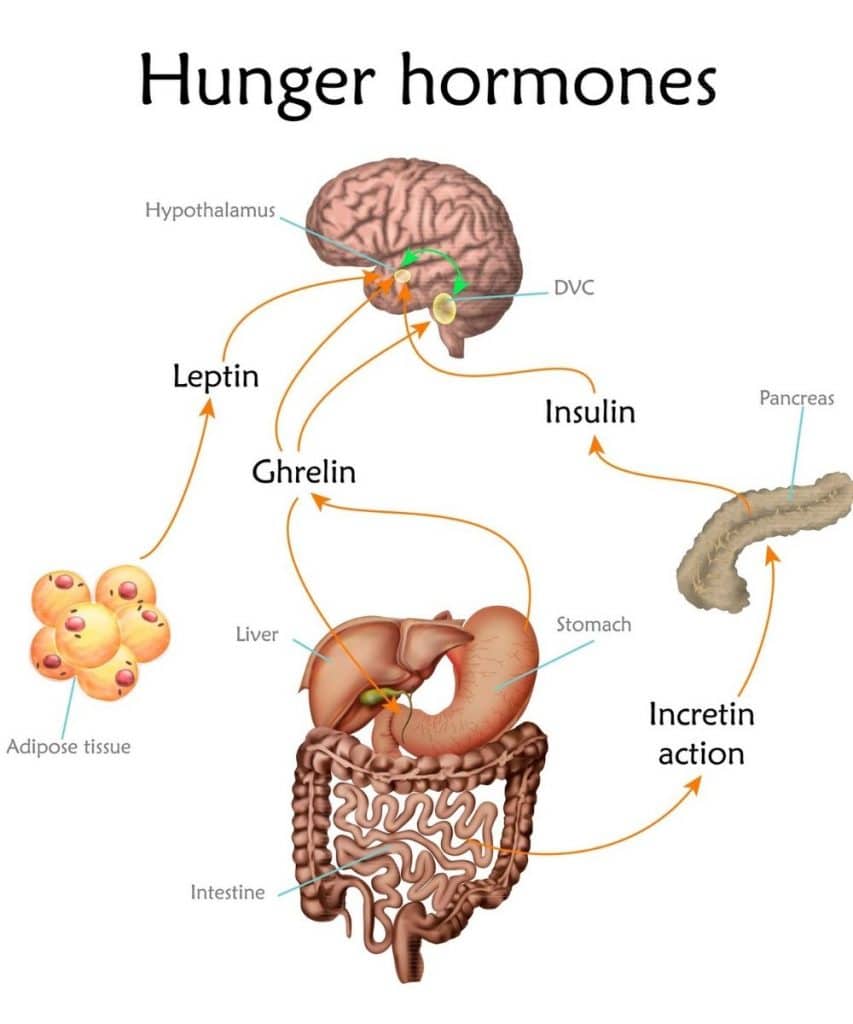Why Lack of Sleep Can Cause Obesity?

Are you beating yourself in the gym? Are you cutting from the foods that you love and sometimes, you don’t eat anymore?
If you’re doing this and your weight is still more than it should be, there must be something wrong.
Commonly, we are advised and coached that weight is basically determined by our nutrition and activities.
However, we now know that weight gain is caused by more than just our habits.
But, we need to consider more than weight is influenced by genetics, socioeconomic position, community environment, stress, and overall health.
Additionally, sleep deprivation is one of the risk factors for obesity. So how well or poorly you doze might affect your weight gain or reduction.
Let’s get down to it.
The Relation Between Obesity and Lack of Sleep
A disturbing concern for people with problems with weight, mainly obesity, is that sleep loss links to more issues.
Not only does lack of sleep lead to weight gain, but it also worsens the biological process that contributes to further weight gain.
Disrupted body metabolism and an increase in food intake are indeed the main reasons for complications.
Insomnia and its Effects on Weight Gain
Obese or overweight individuals more commonly experience trouble sleeping or insomnia.
Aside from that, according to studies, obesity is said to be linked with increased daytime sleepiness and fatigue. This occurs even when people snooze soundly through the night.
Researchers suggest that obesity can disrupt the body’s metabolism and sleep cycles, which badly affects sleep and the quality of rest.
In studies with adults, it is found that sleeping 4 hours a night versus 10 hours leads to an increase in hunger and appetite.
Particularly with high in carbohydrates and calorie-dense foods.
Yes. Your food cravings for the day are because of your lack of sleep.
These patterns are also said to be found similar to both children and adults.
The Impact of Sleep Deprivation on the Body’s Hormones
As mentioned above, some hormones affected by bedtime deprivation are leptin and ghrelin.
Little you might know, but bedtime impacts more hormones than we think.
Hormones might be affected by sleeping too much or too little. That’s why getting a good night’s slumber is so vital to keeping your hormones in check.
Hormones and what they do
When controlling the body’s many systems and activities, hormones are a critical part of the equation.
A wide variety of hormones are required for the body’s healthy operation.
The endocrine system, a network of glands and organs situated throughout the body, is responsible for the release of these hormones.
These hormones are responsible for your body functions:
- Metabolism
- Appetite
- Blood pressure
- Sleep-wake cycles
- growth
- body temperature
- sexual function, drive, and reproduction
Hormone synthesis and function can be affected by other bodily activities, such as sleep.
Hormones and Sleep
Sleep and circadian rhythms have an impact on a variety of hormone functions and their release, and vice versa.
Here are several hormones that are affected by sleep:
- Melatonin
- Cortisol
- Estrogen and Progesterone
- Thyroid Hormones
- Hunger Hormones
- Growth Hormones
Melatonin
You’ve heard this word before, usually for sleeping aids. Little you may know, you already have this in your body.
Melatonin is a hormone produced by your body’s pineal gland and is directly linked to your body’s sleep-wake cycle.
It’s the hormone in charge of regulating your body’s circadian rhythm. This means it’s the one that makes you fall and stay asleep.
Sleep deprivation can impact melatonin production and its role in promoting sleep to the brain.
Cortisol
Cortisol is commonly known as the “stress hormone.” It is a steroid hormone that is produced in the adrenal glands.
Its function is to regulate other hormones.
Poor sleep can have great negative effects on cortisol release. With that, sleeplessness will disrupt other hormones as well.
Estrogen and Progesterone, and Thyroid Hormones
These 2 hormones and other thyroid hormones are also gravely troubled when we lack slumber.
They play an essential part in maintaining the health and function of our reproductive system.
Deprived sleep causes hormone production to slow down. This downside causes your metabolism to slow down too likely.
Hunger Hormones
The 3 hunger hormones affected by sleep are namely:
- Leptin
- Ghrelin
- Insulin
Metabolism of the body can be improved or obstructed by many factors.
But, slumber is essential in regulating metabolism.
Metabolism is the process of our body’s chemical reactions to converting food to energy.
When metabolism is slow and poor, food consumed will not be appropriately processed and converted into energy but just stored.

Growth Hormones
Also known as Somatotropin or Human Growth Hormone (HGH), it plays a vital role in:
- Metabolism
- Protein production and synthesis
- Muscle development
- Immunity
The lack of ZZZs significantly impacts the production and amount of growth hormones.
Doctor Sara Gottfried of Thomas Jefferson University’s integrative medicine and nutritional sciences department says good snooze is essential for good health and balanced hormones.
Best Natural Treatment for Insomnia
There are many ways to deal with insomnia, but it’s highly recommended to consider natural remedies.
Here are Top 5 treatments you can consider:
- Essential Oils
- Melatonin
- Meditation
- Regular Exercise
- Natural Sleep Aids
Essential Oils
Incorporating essential oils in your life can help your body engage in rest-mode.
Such oils as lavender, chamomile, and valerian root are highly recommended for the improvement of slumber.

Melatonin
Melatonin dietary supplements can be taken via liquid or capsule to supplement your natural hormone production at night.
It will enhance your quality of bedtime.
Meditation
Mindful meditation can reduce stress, boost resilience, improve mood, and enhance body immunity.
With the body functioning in harmony, organs and hormones will get in sync and will perform better.
Regular Exercise
Aside from meditating, regular exercise can boost the body’s well-being.
Exercise also elevates fitness levels and improves mood. Also, it can help you get a better night’s snooze.

Natural Sleep Aids
If you are conscious of what you put in your body but want a quick fix, natural sleeping aids are your best buddies.
They can help you doze off fast without the threat of intaking synthetic chemicals in the body.
With that, it helps you fix your body’s sleeping patterns pronto. Which then, will regulate your body to function well and improve metabolism.




